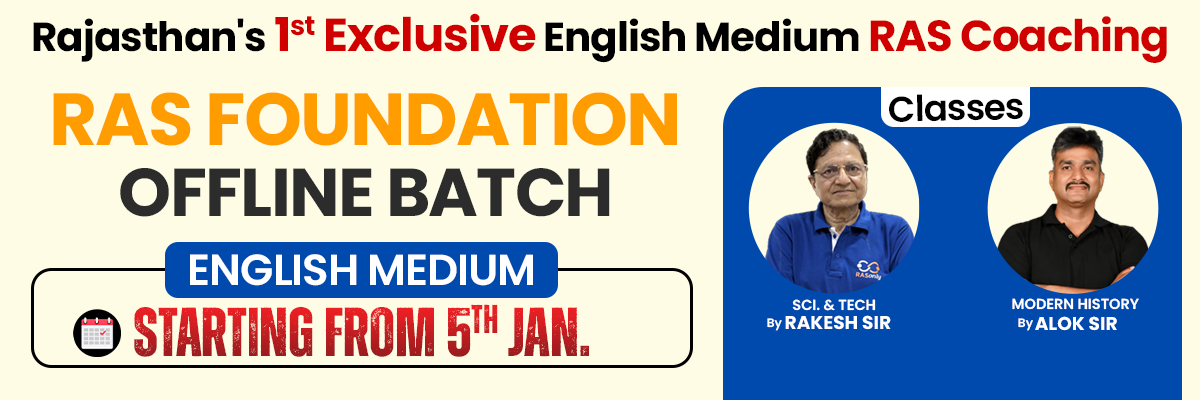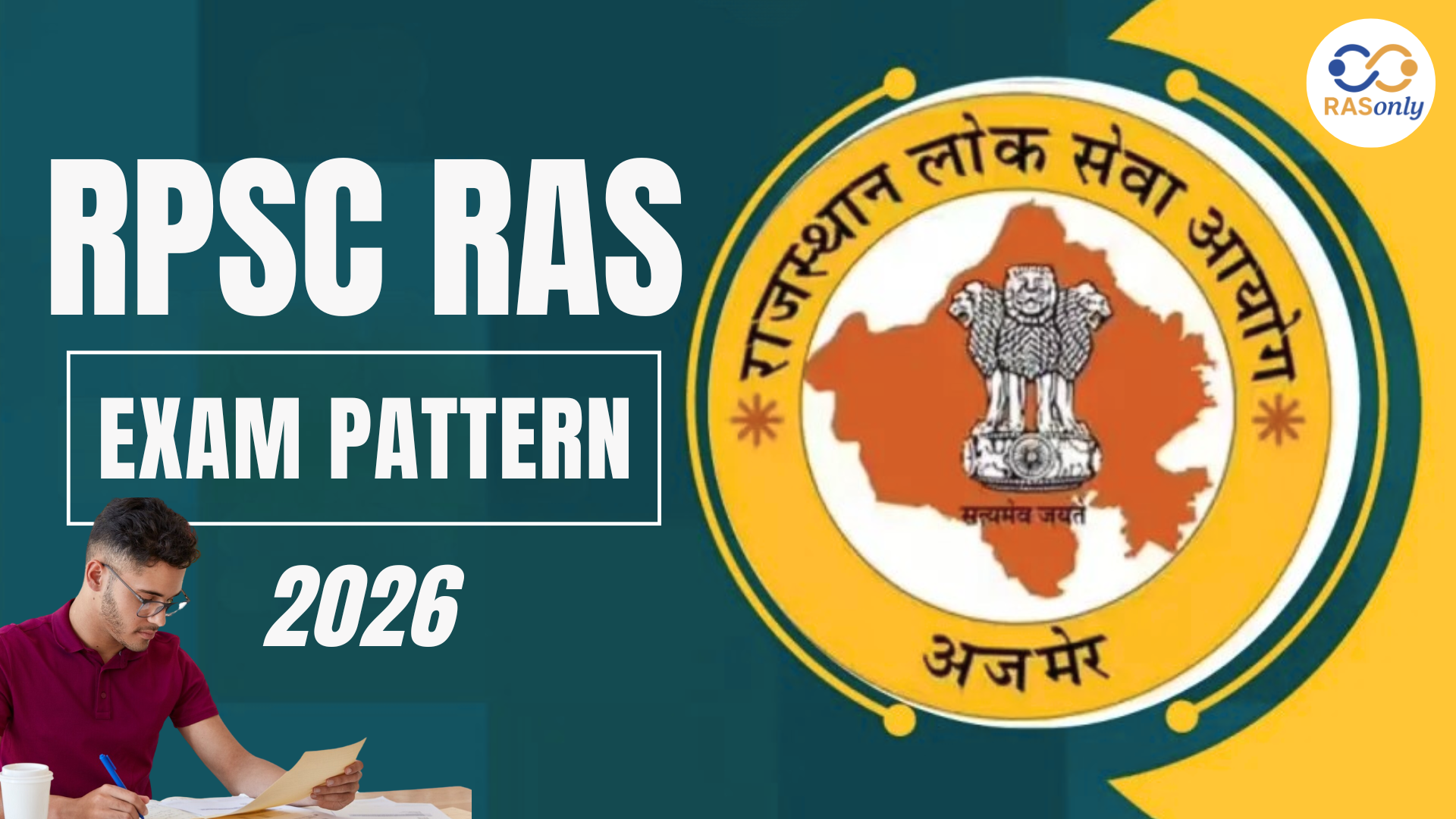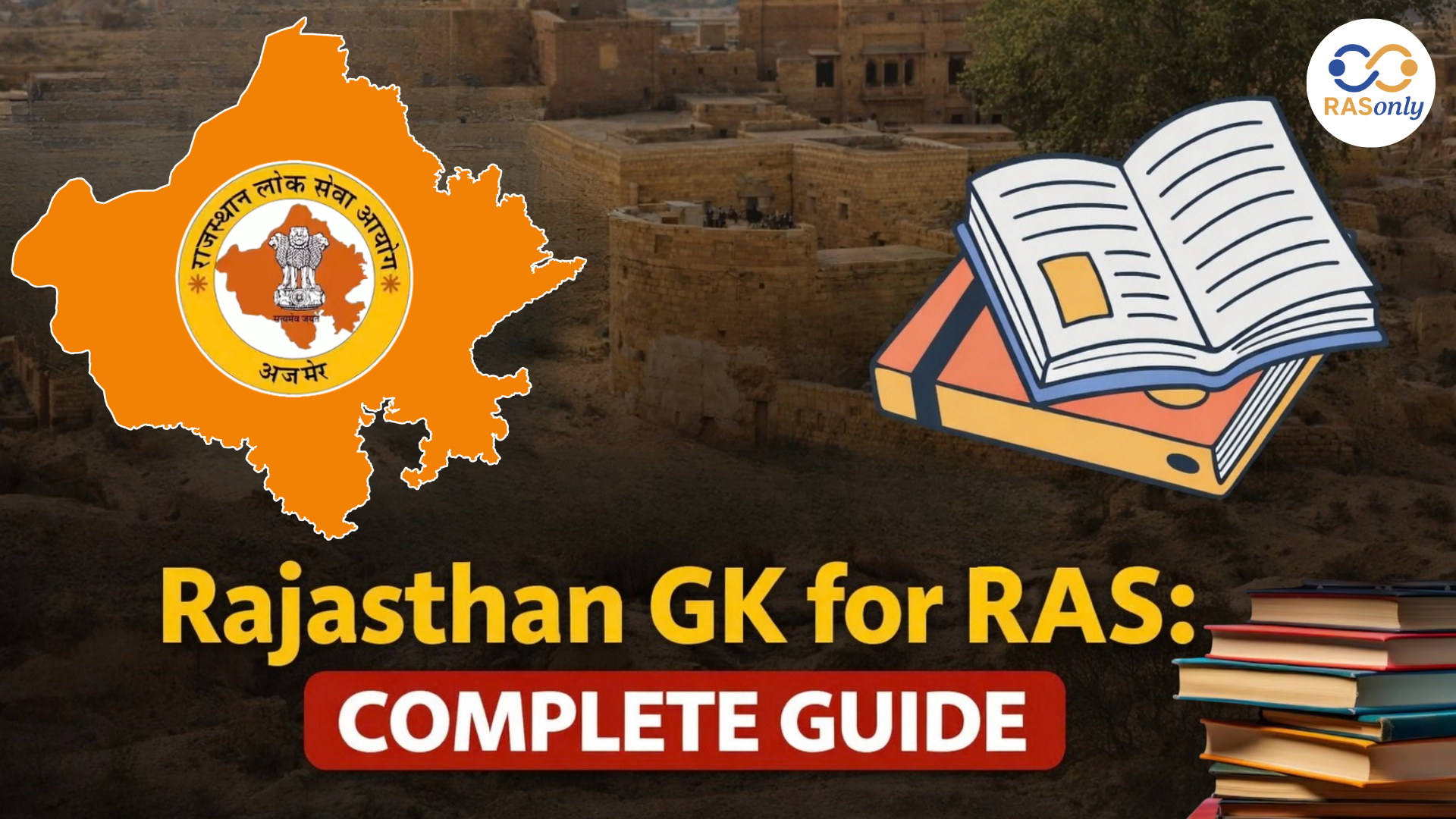RPSC RAS 2026 Subject Wise Exam Pattern for Prelims, Mains & Interview Details
- >
- RAS Preparation Resources
- >
- International Solar Alliance
International Solar Alliance

Get in Touch with RASonly!

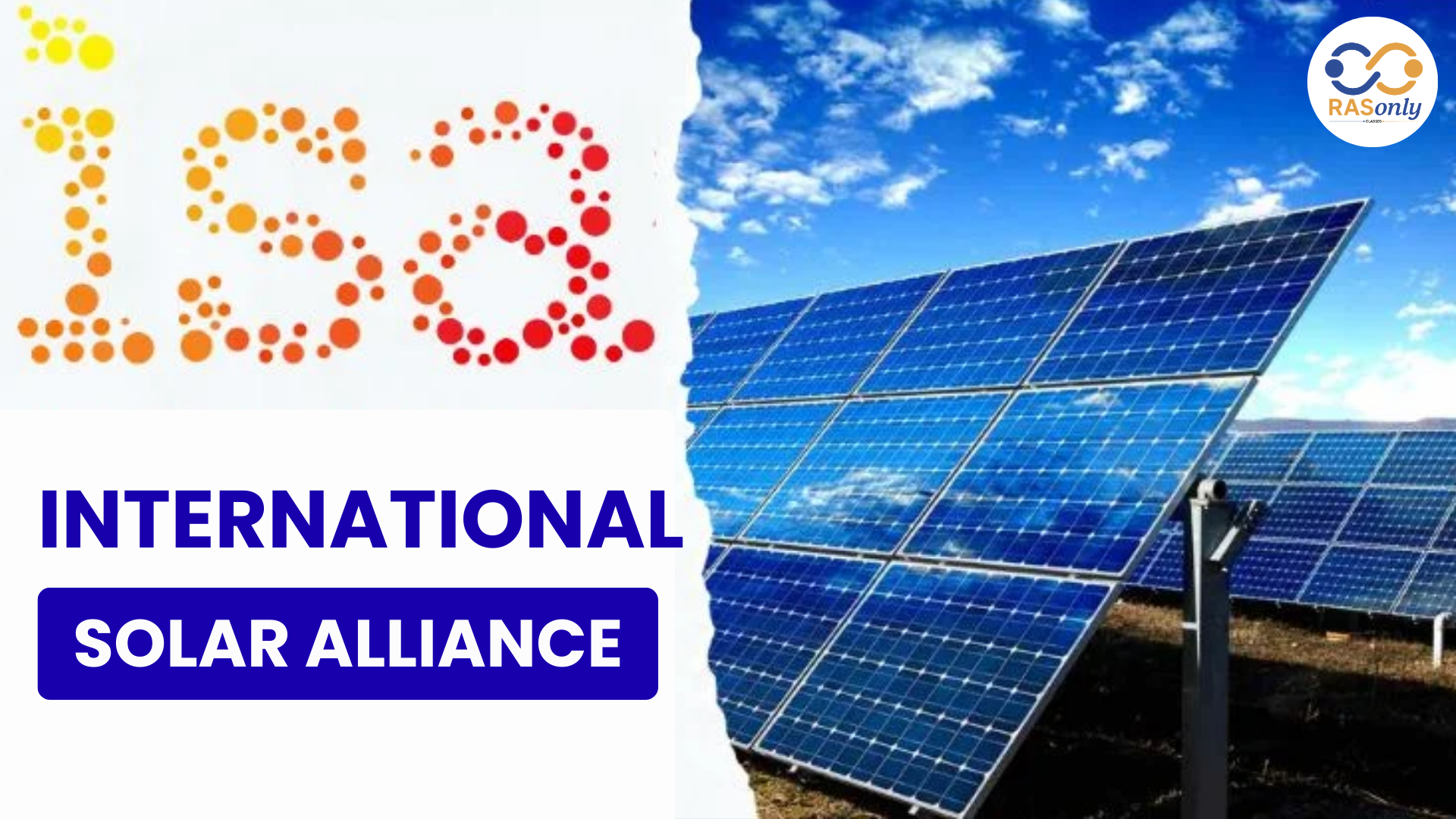
ISA is an intergovernmental organization based on a treaty having more than 120 countries that are mostly located between the Tropic of Cancer and Tropic of Capricorn. It is an international effort presented by India with the aim of fostering cooperation in terms of solar energy and lowering the use of fossil fuels and boosting the pace of sustainable energy transition.
What is the International Solar Alliance?
- Founded in November 2015 in Paris when world leaders held the UN Climate Change Conference (COP-21).
- ISA has come to be one of the significant platforms of energy diplomacy in the 21st century.
- It has its head office in Gurugram, India with India and France dominating its foundation.
Key Points for RAS Mains
Goals of ISA
- The aim of the collaboration was to develop solar energy applications to scale up to a larger extent and make such costs affordable.
- To enlist more investments of USD 1 trillion to be used in solar projects by the year 2030.
- Modify the innovative financial mechanisms to ensure affordability of solar power.
- Promote solar technologies research and development, innovation, and capacity development.
- Ease the exchange of knowledge and networking among member states.
- Technical assistance to meet UN Sustainable Development Goals (SDGs) and its obligations under the Paris Agreement.
ISA targets
- Reach 1 TW (1000GW) of solar power by 2030 with the cost of investment of $1 trillion.
- Assist India in achieving its renewable energy target: 175 GW by 2022 (of which 100 GW solar) and 450 GW by 2030.
Focus Areas
- Grid-connected solar power - solar parks, roof top solar power, canal top and floating solar plants.
- Off-grid application Only mini-grids, solar pumps, solar lanterns, telecom towers, village electrification.
- Innovation and Technology- novelties in materials, energy storage, effective photovoltaic technologies.
- Capacity building- training, STAR-C (Solar Technology Application Resource Centres), Infopedia platform.
Vision & Mission
- Vision: together make the sun more bright.
- Mission: To ensure that any home however distant has light at home.
The importance of ISA
- Contributes to Paris Climate Goals in the form of lowering GHG emissions
- Contributes to the accomplishment of SDG 7 (Affordable & Clean Energy) and SDG 13 (Climate Action).
- Enhances South-South clean energy cooperation.
- Improves the energy security of the third world states.
- Further encourages low-cost financing on solar and international partnerships.
- Puts India in a leading position in terms of renewable energy diplomacy.
Major Milestones
- STAR-C (2018): Release of the STAR-C infopedia; greater outreach.
- Second Assembly (2019): The membership was extended to all of the UN member countries; 81 signed, 58 ratified. India voted in the President, France Co-President.
- ISA World Solar Technology Summit (2020): it focused on next-generation solar technologies; introduced ISA Journal (I JOSE).
- World Solar Bank (proposed): 15 billion authorized capital to fund world-wide solar projects.
Issues & Challenges
- Lack of capacity in a number of developing member countries.
- Tariffs on solar PV modules at the African and Pacific countries and high costs of installation.
- Risk of turning ISA into a place of demonstration of the technology instead of solving local issues.
- The need to be clearer and communicate more goals.
- Lagging behind the process of financing the world and private investments.
Way Forward
- Put it back to its mandate of demand aggregation, financial support and technical cooperation.
- Show business models of solar use that are feasible.
- Instigate the policy support in the member countries to lower tariffs as well as regulatory barriers.
- Enhance awareness to develop on the usefulness of solar among the common users.
- Develop good relations with the MDBs, UN system and the private sector.
Conclusion
The International Solar Alliance is an innovative initiative to bring together sunshine-abundant countries on the same platform of proliferating solar energy. It can change the world energy market and decrease carbon footprints and help achieve green development. Overcoming these obstacles of finance, technology transfer and capacity building, ISA can in the truest sense of the term, become the OPEC of solar energy - simultaneously driving the world towards a cheap, clean, and renewable energy future.
Post Category
- RAS Salary
- Result
- RAS Admit Card
- RAS Job
- RAS Cutoff
- Preparation Tips
- RAS Answer Key
- RAS Exam Analysis
- RAS Syllabus
- RAS Previous Year Papers
- RPSC RAS Exam Pattern
- RAS Interview
- RAS Mains Exam Date
- RAS Vacancy
- RAS Test Series
- RAS Best Books
- RAS Preparation Resources
- RAS Coaching Centre
- History
- Polity
- Geography
- Economics
- Science
- Art and Culture
- RPSC RAS Application Form
- RPSC RAS Notification
RASonly Interview Guidance Program

Mr. Ashok Jain
Ex-Chief Secretary Govt of Rajasthan
- IAS officer of the 1981 batch, Rajasthan cadre.
- Passionate about mentoring the next generation of RAS officers with real-world insights.
- Got retired in Dec 2017 from the post of Chief Secretary of the state of Rajasthan.

Mr. Guru Charan Rai
Ex-ASP / SP in Jaisalmer
- Guru Charan Rai, IPS (Retd), retired as Inspector General of Police (Security), Rajasthan, Jaipur in 2017.
- Served as ASP and SP in Jaisalmer, Nagaur, Sri Ganganagar, Sawai Madhopur, Dausa, Sikar, and Karauli.
- He also held key positions as DIGP and IGP in the Law and Order division.

Mr. Rakesh Verma
Ex-IAS Officer, B.Tech, MBA, and M.A. (Economics)
- IAS officer of the 1981 batch and retired in Chief Secretary Rank.
- Civil servant of high repute and vast experience.
- Has been teaching UPSC CSE subjects for the last six years.
Related Post
Daily Current Affairs for RAS Exam Preparation 2026
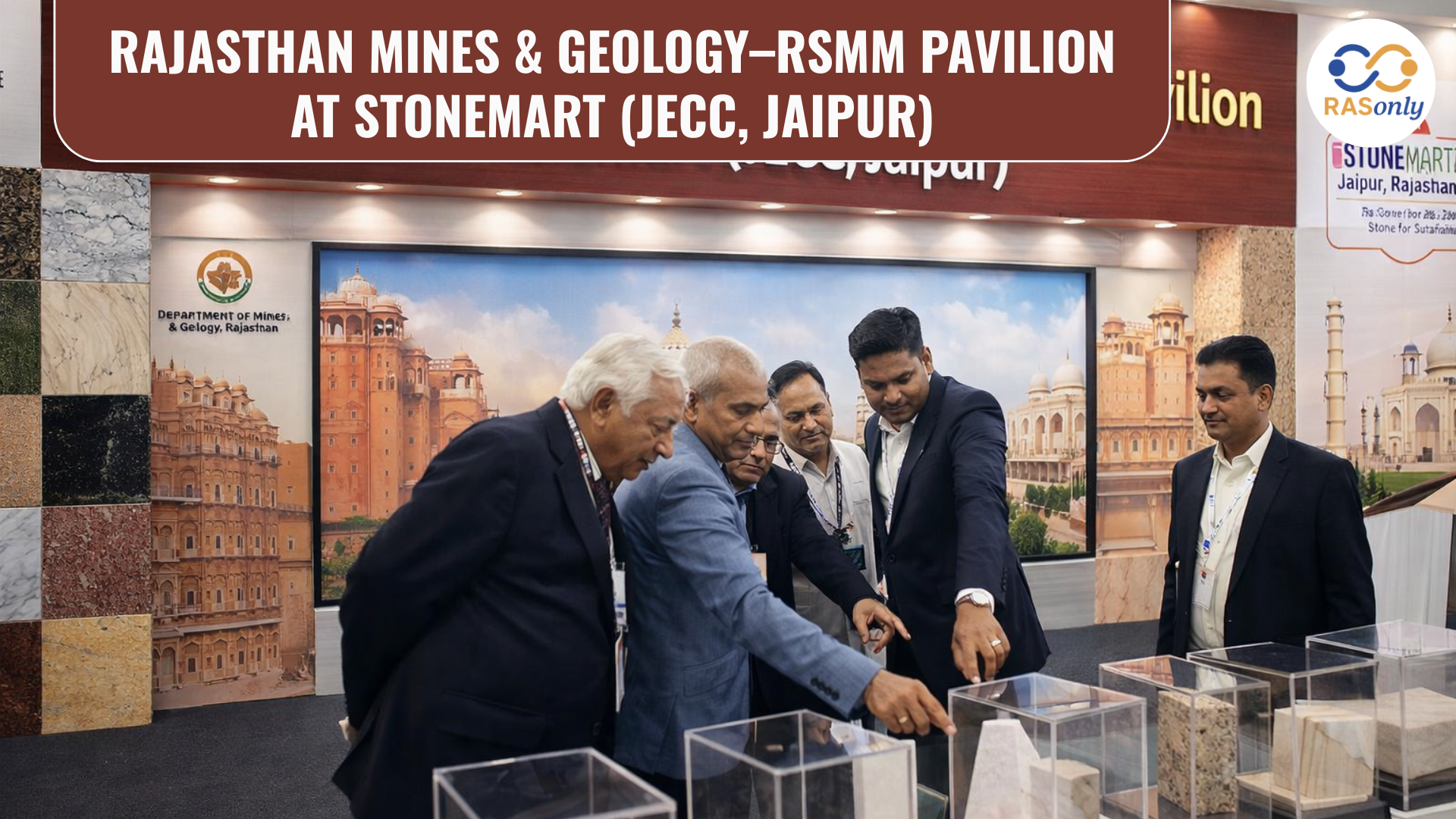
Rajasthan Pavilion Shines at Stone Mart Jaipur 2026
February 07, 2026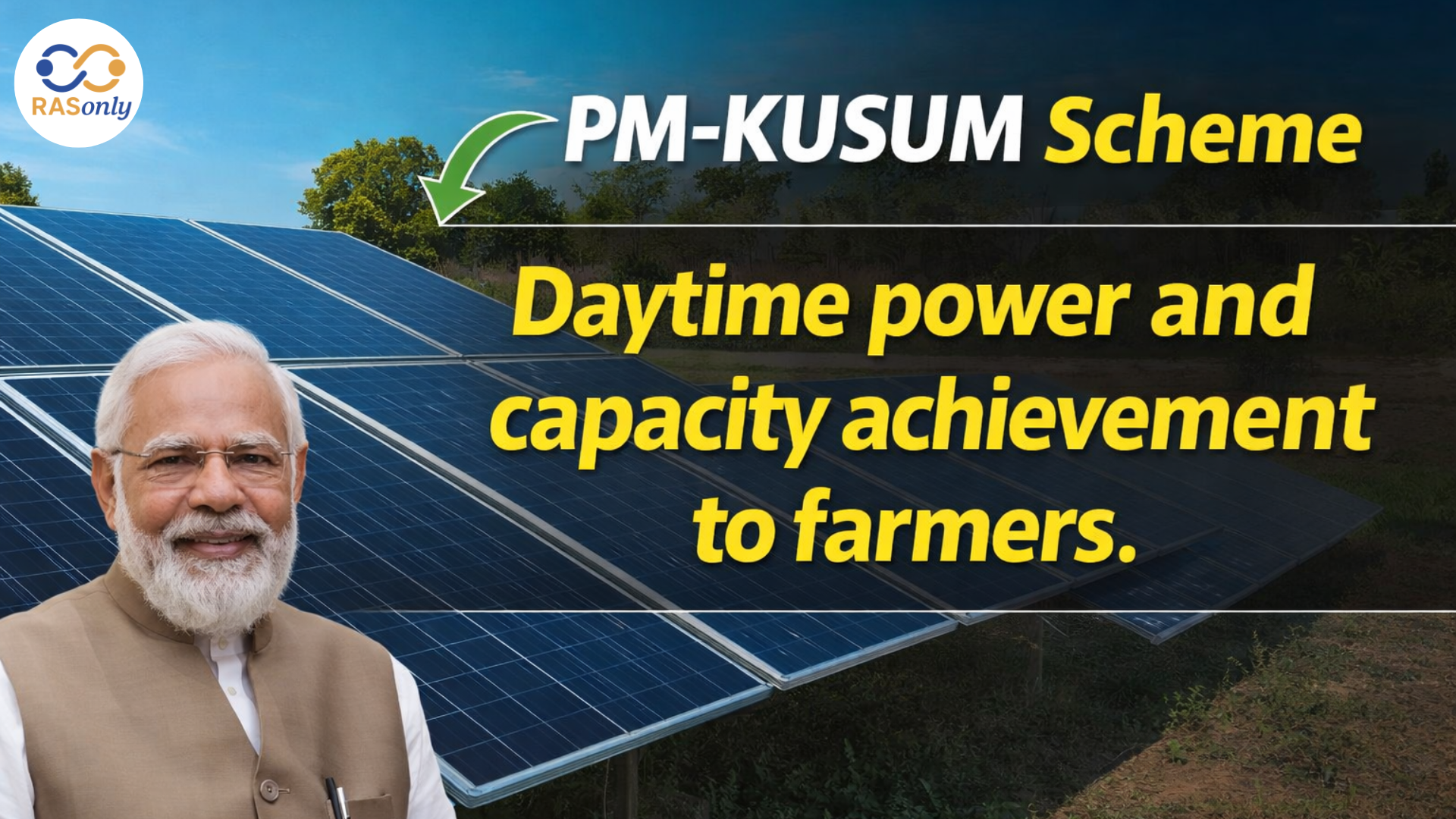
Rajasthan Achieves 3,000 MW Under PM-KUSUM Scheme
February 07, 2026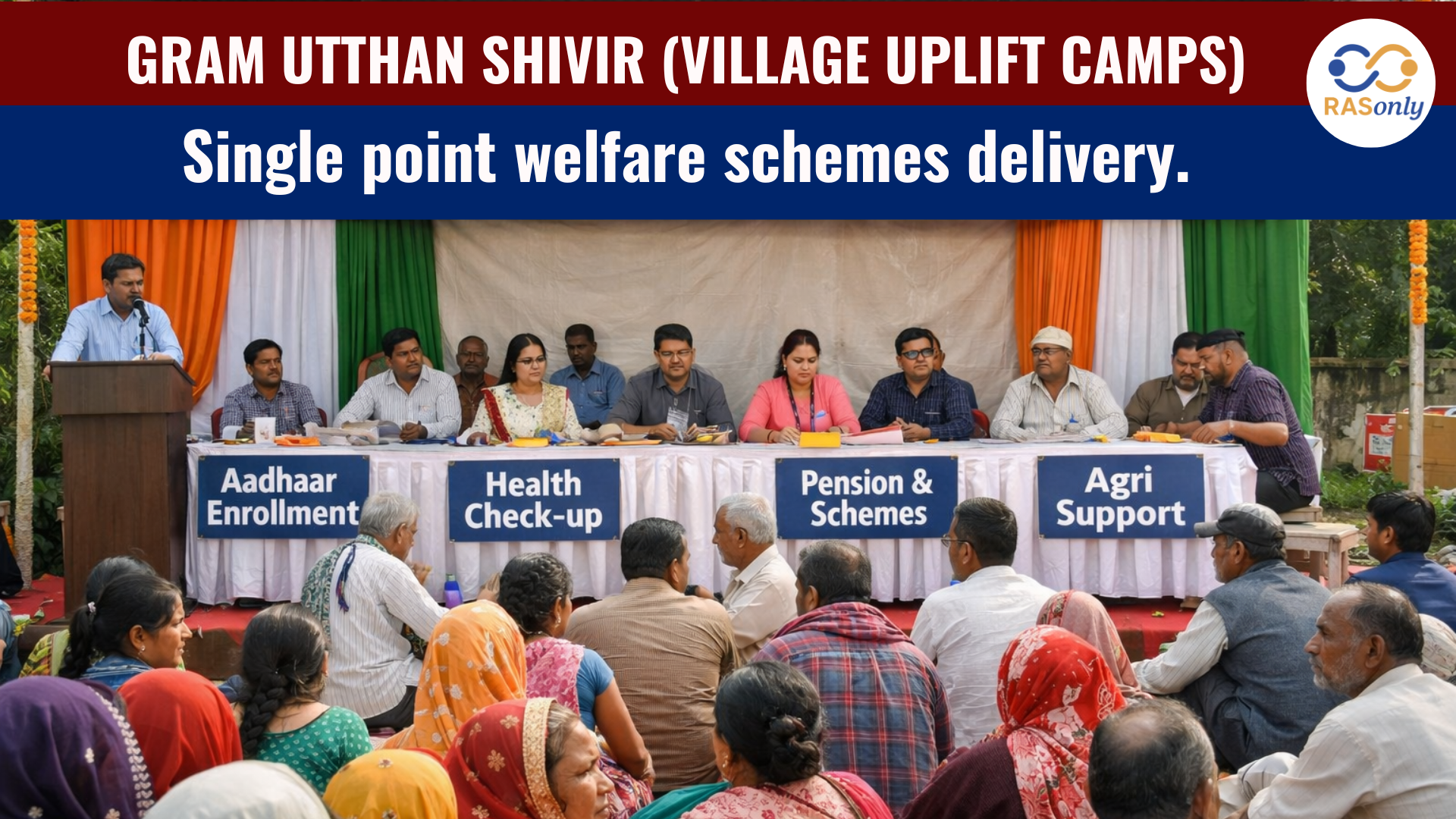
Gram Utthan Shivirs Strengthen Rural Governance in Rajasthan
February 07, 2026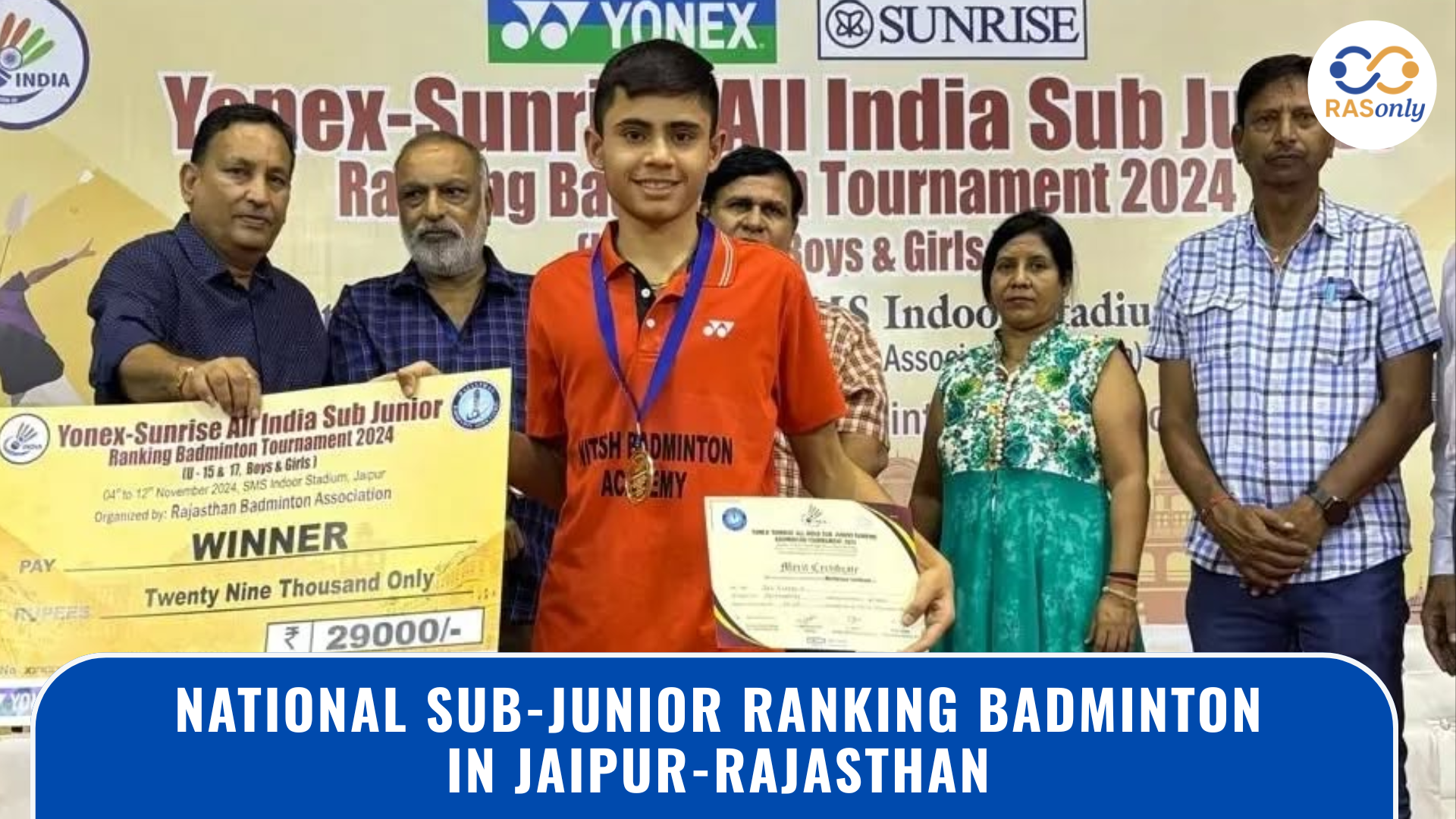
Jaipur Badminton: 72-Minute U-15 Final Creates Record
February 06, 2026👉🏻 Register Today to Join Classes! 👍🏻
- Team RASOnly -
🎯 Benefits of RASOnly Coaching:
- ✅ 1:1 Mentorship with RAS Officers
- ✅ Experienced and Expert Faculty
- ✅ Free Library Access
- ✅ Daily Minimum 4 Hours Must
- ✅ Comprehensive Study Material
- ✅ Regular Tests & Performance Analysis
- ✅ Personalized Guidance & Doubt Solving
- ✅ Online & Offline Class Options
- ✅ Affordable Fees with Quality Education
Key Highlights:
- 👉🏻 3-Day Refund Policy
- 👉🏻 New Batch Starting from 04 August
- 👉🏻 Registration Amount: Only ₹1000




